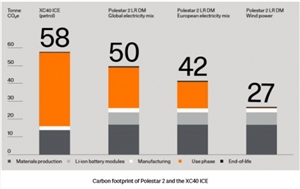An interesting piece from The Engineer comparing the whole life energy costs of a Polestar and the equivalent petrol Volvo. There are obviously a number of assumptions that can be challenged but it tends to support my current view that replacing my 13 year old diesel with an EV does not yet make sense.


The comments also raise some interesting points.
